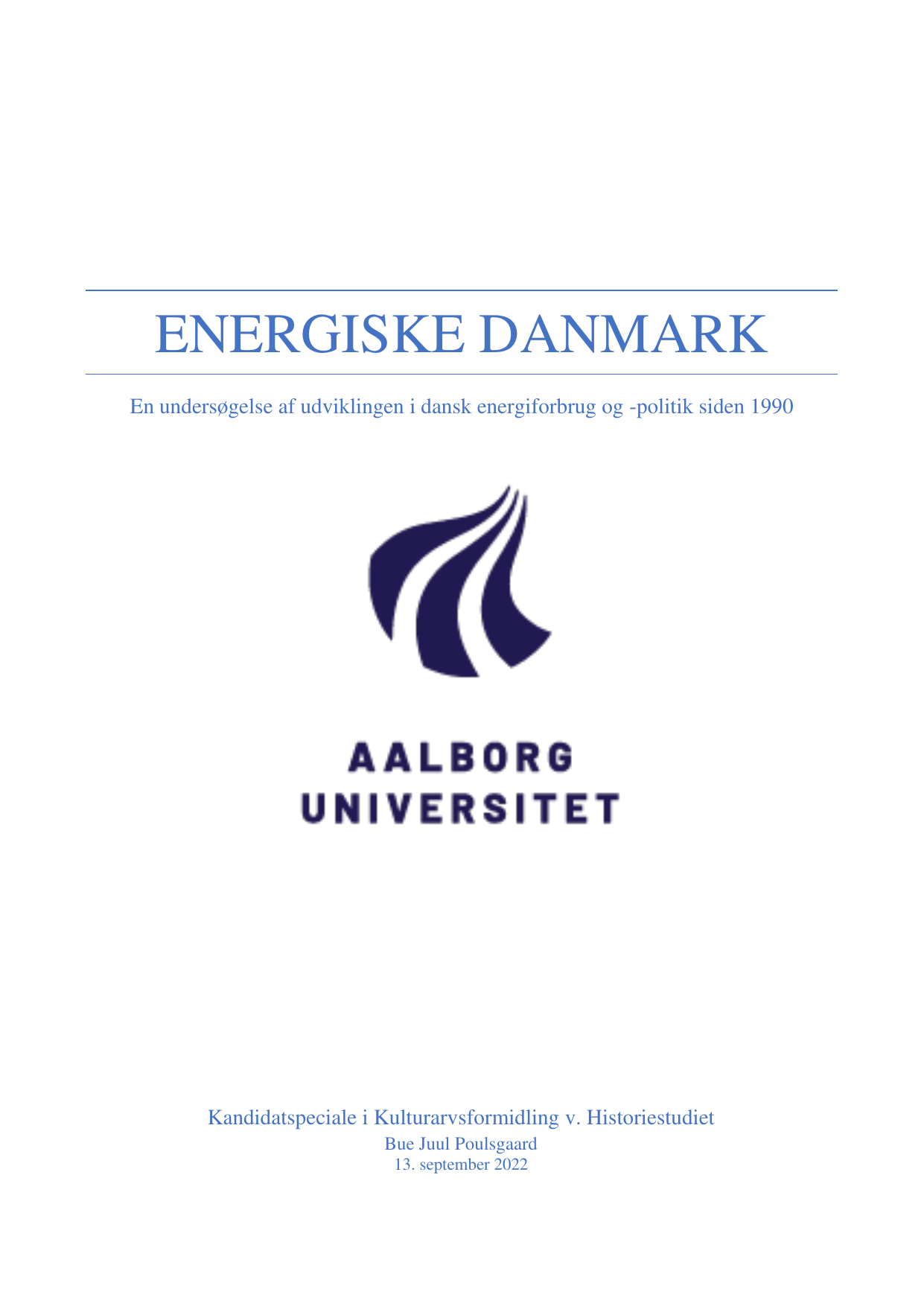
Energiske Danmark: En undersøgelse af udviklingen i dansk energiforbrug og -politik siden 1990
Oversat titel
Energetic Denmark
Forfatter
Semester
4. semester
Uddannelse
Udgivelsesår
2022
Afleveret
2022-09-12
Abstract
It is something we do not notice in our everyday lives, but we are all dependent on it. Every time we turn the lights on, use the oven, recharge our cellphones, watch television, talk on the phone, even the heating of our homes. It is all made possible with the use of energy. Energy is and have always been fundamental. With todays advanced technology and large-scale consumerism energy is even more needed. It is a fundamental part of modern life and society. In the olden days the use of energy was accompanied by the local combustion of materials such as firewood or later coal. Today when we think of energy, we mostly think of electricity. The materiality of energy has left the collective conscious of society. Since 1990 there has been a movement in Danish politics to further the use of sustainable energy sources, such as windpower, in the hopes that this will lower the use of fossil energy sources. There is no questioning whether the Danish capacity of sustainable energy has grown since then, but the question is how the use of energy has changed in Denmark – has the use of fossil fuels, and greenhouse gas emissions really been lowered since 1990. And in what way, shape or form has the Danish energy politics changed in this period and how does it correspond to the changes in energy use? Through analyzing the abundant amount of data available on Danish energy consumption, cost here of and demographic changes of Danish society, I seek to uncover any changes herein and discuss the reasons for this. In this way I will be investigating the changes on a societal level. Here I have found that the changes have not been enough. For Danish society to reach the goal of lowering the greenhouse gas emissions from energy use by 70% in 2030, compared to 1990, it is not enough to implement more and more sustainable energy without looking at the Danish people’s behavior and practices with regards to energy. I found that Danish households in general used more energy in 2021 compared to 1990. The use of energy had even been stable on this level since 1996. But the greenhouse gas emissions had been lowered over time. This change in emissions was due to optimizations of energy production and energy use. But the reason for the continuous high energy use of Danish households was in part due to a growing population and the practices of Danish people. Studies show a tendency for Danish people to have larger housing with less people living together and therefore more square meters per person, since 1990. This tendency is what is known as the re-bound effect. An example of this is when optimizations of energy production and use make us use more energy. The further you can drive on a liter of fuel, the cheaper it is to drive and therefore we drive more and longer. It was made even clearer through an estimate of the yearly energy use of an average Danish household. Here I found that the energy use of the average Danish household had in fact decreased since 1990 and so had the greenhouse gas emissions. But the decrease in energy use was not as much as the effectual optimizations in energy productions and use. This made it clear that for the optimizations and growing use of sustainable energy in Danish society to have the wanted effects, the Danish people and politicians must make changes in the practices of energy use and politics regarding these.
Emneord
Energi ; Energihistorie ; Drivhusgas ; CO2 ; Kuldioxid ; Historie ; Forsyning ; Bæredygtighed
